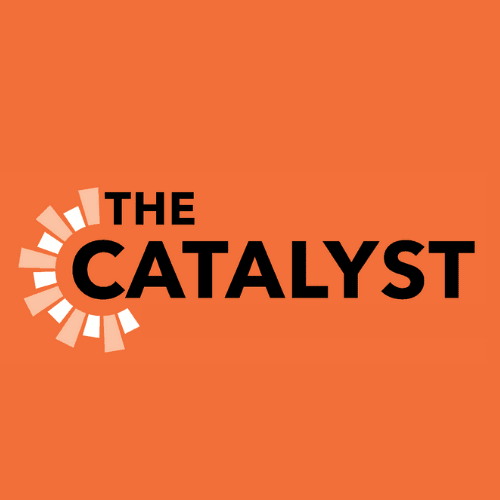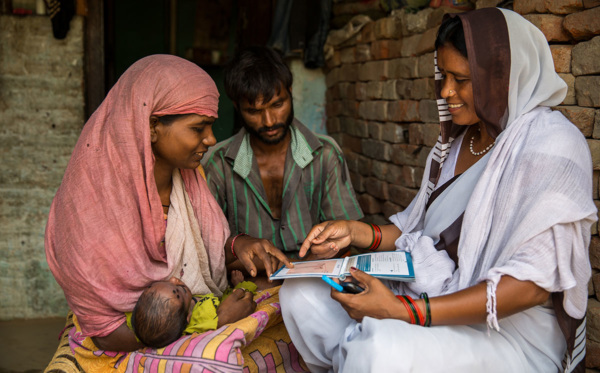Youth Advocacy in Action (Spring 2023)

Re-Establishing U.S. Global Leadership

For the past several years, I’ve represented PAI on the U.S. Global Leadership Coalition, a mix of business, nongovernmental organizations, foreign policy and other experts committed to promoting the need for and importance of U.S. diplomacy and development efforts. In my role, I’m forced not to raise the family planning flag all the time. Instead, I sit at a table focused on gaining political support and congressional buy-in for the bigger picture: the U.S.’s global leadership on myriad issues, from curbing HIV infection to economically empowering communities.
I bring this up because it’s this broader view that’s guiding how PAI is engaging with the U.S.’s new energetic and diverse congressional members. Our role is to help them understand how women’s and girls’ empowerment and their access to family planning are fundamental to the world’s stability and security. The big picture.
We know that investing in family planning improves the lives of women and their families and benefits a country’s economy. But we have to keep making the case for women’s access to contraception; that this is something the U.S. has been a global leader on for decades, that it’s something we’ve invested in for decades.
Though it’s unlikely that the efforts we work toward will be endorsed by the current Senate or this administration, we must try. We must lift our issues up above the fray over and over again. Among new members and others, we’ll continue pushing back against policies that seek to limit women’s reproductive rights. Continue documenting the harm these policies cause. Continue pressing our leaders to think more broadly about the position the U.S. stands to lose on the global stage—and what it will mean for half the world’s population.
It’s going to be an uphill marathon, but I’m excited about the opportunities that await us along the way.
In partnership,

Suzanne Ehlers
President and CEO
Cultivating New Congressional Champions to Protect International Family Planning
At PAI, we will talk to any policymaker—regardless of political party—about the importance of family planning and reproductive health. But it is no secret that the recent shift of power in the U.S. House of Representatives infused our movement with a much-needed jolt of positive energy and a fresh set of opportunities in 2019 for PAI to resist policies that aim to turn back women’s reproductive rights.
Before this year, advocates had to rely on champions in the Senate to defend women’s sexual and reproductive health and rights against proposed cuts supported by a conservative House. Thanks to their leadership and our persuasion, the U.S. government remains the largest bilateral donor to family planning and reproductive health programs around the world. This is no small feat when you consider that the current administration attempted to eliminate funding for these programs during its first year in office and proposed cuts of 50 percent or more in 2018 and 2019.
Now, we stand ready to recruit new champions in the House, where an unprecedented 102 women serve, 35 of whom won their seats for the first time. Many are young. Some are mothers. All are determined to improve the system. And they know what it means to be economically empowered and how important it is for women to have control of their own choices. Critically, the new Democratic House members ran on oversight of the Trump administration—demanding transparency and accountability, key components of PAI’s larger body of work. Through these newly elected members, we have an opportunity to ensure the U.S. remains a leader in the international community, particularly in global health.
In the year ahead, PAI will cultivate relationships with new members and educate them and their staff on critical family planning and reproductive health issues. “We want to elevate for these potential champions the value of investing in programs that support women’s sexual and reproductive health and rights here and around the world,” said Rebecca Dennis, PAI senior legislative policy analyst. “Their voices will be essential to mitigating hostile attacks from the administration and to bolstering funding.” Among PAI’s goals are to:

Read more to learn about the key opportunities for progress this year—and how you can help advocate for the world’s women and girls.
Below Are PAI’s Top Four Priorities on Capitol Hill for 2019
What it is. The Global HER Act would permanently repeal the expanded Global Gag Rule (GGR), which requires foreign nongovernmental organizations to choose between receiving U.S. global health assistance and providing comprehensive sexual and reproductive health care to women and girls around the world.
Why it matters. Our research shows that in some countries, the GGR is already eroding health systems, undermining women’s health and threatening their lives. Repealing the policy will reverse these trends and allow health care providers to deliver the comprehensive sexual and reproductive health information and care all women deserve.
Our role. We are making the case for the Global HER Act by documenting the impact that the GGR has had among trusted health providers and vulnerable groups, including youth, people living with HIV/AIDS and rural populations. With this evidence, we are securing co-sponsors for this legislation who will be ready to act when there is enough support for a full repeal.
What it is. In 2017, the Trump administration cut off all U.S. contributions to the United Nations Population Fund
(UNFPA), which supports family planning and reproductive health programs in developing countries and in humanitarian crises.
Why it matters. UNFPA is a global leader in providing sexual and reproductive health and gender-based violence services in humanitarian settings devastated by the effects of conflict and natural disaster. UNFPA creates safe spaces for crisis-affected women and girls, trains personnel to provide care and equips clinics with reproductive health kits that include birth control.
Our role. We are elevating the important work UNFPA does in 155 countries around the world. We are pushing Congress to overturn the administration’s shortsighted decision to cut off funding to UNFPA because we understand the crucial role UNFPA plays in improving the health and lives of women, girls and young people around the world, including those affected by crisis.
What it is. The Reproductive Rights are Human Rights Act would make it mandatory to report comprehensively on the status of reproductive rights in countries around the world. Historically, the State Department’s Country Reports on Human Rights Practices have annually documented barriers to health and prosperity for women and girls. Since 2009, these reports have also included information on barriers to women’s sexual and reproductive health access. In 2017, the Trump administration stripped down the required data and analysis to focus only on coercive abortion and forced sterilization. It also removed reporting requirements on the status of women’s reproductive rights.
Why it matters. Data about women’s reproductive health, including current rates of maternal mortality and barriers to accessing care, are critical for advocates to fight for the health and rights of women and girls around the world and to push for policy change by holding their governments accountable.
Our role. PAI is collecting evidence on the reproductive health injustices many women experience in the countries in which we work, including El Salvador. We are sharing our insight and evidence about the barriers to care with congressional members to demonstrate the critical nature of this reporting and lining up co-sponsors for this bill.
What it is. Each year Congress undertakes a process known as appropriations to determine how federal money will be allocated and spent across federal government agencies and programs in the year ahead. In March, the Trump administration proposed a dramatic cut for international family planning and reproductive health programs as part of the fiscal year (FY) 2020 budget request. It represents a whopping 61 percent cut from the amount Congress just appropriated in February as part of the FY 2019 spending package.
Why it matters. U.S. government-supported family planning and reproductive health programs are targeted at 24 high-priority countries where the need for family planning is the greatest. This funding is used to ensure that in-country health systems can get contraceptive commodities to clinics, that women who want birth control have access to it and that these services are integrated with well-child and maternal health visits, HIV screening and care and more. The U.S. government is working in these countries because all these services are under-resourced. If that support were to suddenly fall off, access to these services would be severely undermined.
Our role. We are responding to and pushing back against the administration’s budget request. We’re making sure congressional champions understand how these funding decisions would affect critical health services that impact the lives of women and girls. We pledge to make this an issue when representatives from the Trump administration come before Congress to justify their funding priorities and all throughout the appropriations process. It is essential that we not just maintain this funding, but increase it.
From staying up-to-date on our work, to taking action on social media, to becoming a monthly donor, there are many ways you can stand up for the world’s women and girls.
Subscribe
Make sure you never miss important information relating to our work or an opportunity to get involved at pai2020s.wpengine.com/sign-up-for-our-newsletters
Take Action
Tweet a message of thanks to the Global HER Act co-sponsors. Find out more at action.pai2020s.wpengine.com/GlobalHER
Become an Advocacy Sustainer
Re-affirm your commitment to reproductive rights every month with a recurring online donation at donate.pai2020s.wpengine.com/givemonthly
Carolyn Hart is inspired by PAI’s fervent commitment to reproductive rights being human rights.

As a young woman, Carolyn Hart knew she wanted to work globally and imagined a future career in diplomacy, international relations or policy. That’s until an aunt asked if she had ever considered public health. She hadn’t. Then she did. And she’s never turned back.
“I really believe there’s no peace without health; there’s no equity without health and there’s no realization of rights without health,” said Hart, vice president of the international division at John Snow, Inc. (JSI), a public health consulting organization. “I’ve always tried to work for organizations and on projects and for causes where we’re trying to make that a reality.”
That sentiment is partly what drew Hart to PAI. She’s been a donor since 2011, but her professional relationship with PAI dates farther back. Hart first became familiar with PAI’s mission 30 years ago in Thailand, while working with the Population and Community Development Association (PDA), a Thai nongovernmental organization that promotes family planning, quality primary health care and other efforts.
It was with PDA that Hart said she witnessed and came to fully understand how foundational access to family planning is to the trajectory of a woman’s life—her earning potential, self-sufficiency and other factors. Factors that also influence a community’s health and economic development.
Later, as a JSI expert, Hart would partner with PAI on a nearly decade-long project to make birth control more available in developing countries by ensuring that contraceptives successfully made their way from suppliers to clinics. “For us, it was advocates and providers working together,” she said. “That’s how you make change.”
Hart said she was compelled to become a PAI donor because of the organization’s “outspokenness,” its effectiveness in showing how global health actions affect women and girls and its fervent commitment to a rights-based approach to family planning, which complements her public health perspective on the issue. “[PAI] won’t accept that reproductive rights are not human rights. And I love that,” she said.
It’s that relentless advocacy, plus PAI’s capacity to understand and work in different contexts—whether the halls of the U.S. Congress or a village in Uganda—that Hart particularly appreciates these days, amid continued attempts to turn back women’s reproductive rights.
“Imagine how bad things would be if there weren’t sustained advocacy,” she said. “Sustained advocacy is the only thing that gives me confidence in the arc of the moral universe being long. Without it, you can slide so far back that you can’t regain ground.”

We are fighting back against the onslaught of harmful policies that discard reproductive rights.
Stay informed about the issues impacting sexual and reproductive health and rights.
